Stitch Book: Back Stitch Tutorial
- Hannah Burbury
- Feb 16, 2020
- 3 min read
Updated: Feb 28, 2020
I have a special treat for you today... I have completed the next page in our stitch book! I planned to share a tutorial with you at the end of each month. However, February is National Embroidery Month. So I thought why not share two stitch tutorials with you this month, instead of just one. Today's tutorial is the back stitch and in two weeks time, at the end of February, I will share with you the next stitch tutorial, French Knots - my favourite!
If you love hand embroidery then I recommend taking a look at DMC's Instagram page as they always share so many beautiful examples of hand embroidery, especially this month as they are celebrating National Embroidery Month.
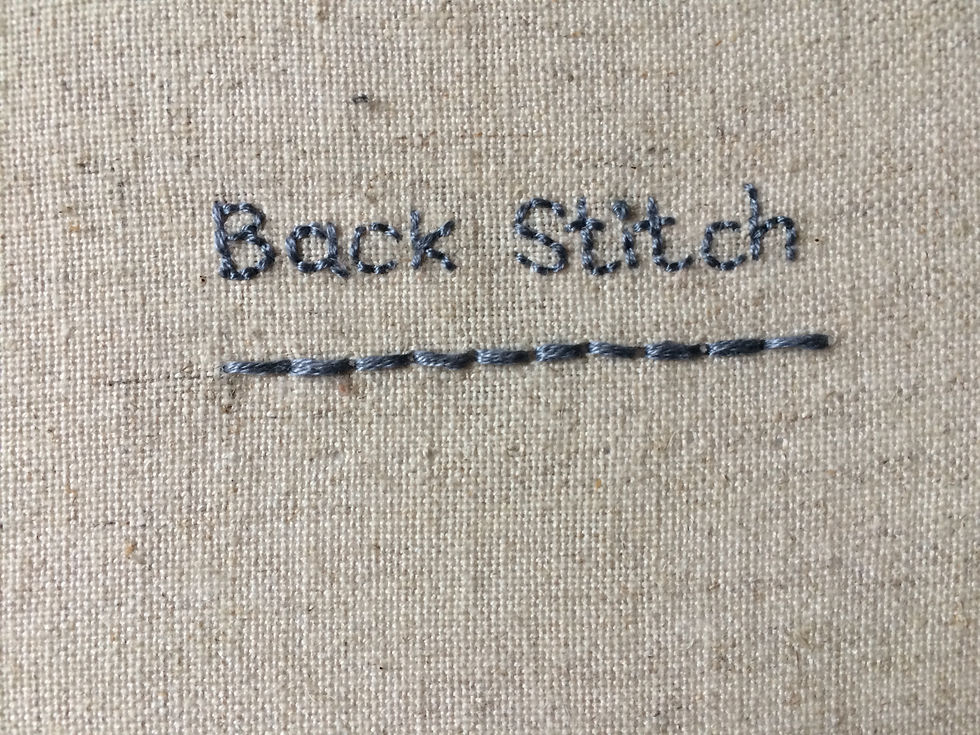
Let's start today's back stitch tutorial... Back stitch is similar to running stitch, it's a simple stitch but has lot of uses.
Back Stitch Tutorial:
1. Start by threading the needle with your stranded embroidery thread. It's up to you how many strands of thread you want to sew with. I have chosen all six threads for this tutorial. Tie a small knot at one end of the thread.
2. Bring the needle up through the fabric, this is your starting point.
3. Then put the needle back in the fabric, where you want to stitch the end.
4. Now bring the needle back through the fabric, roughly the same distance away as the length of the last stitch.
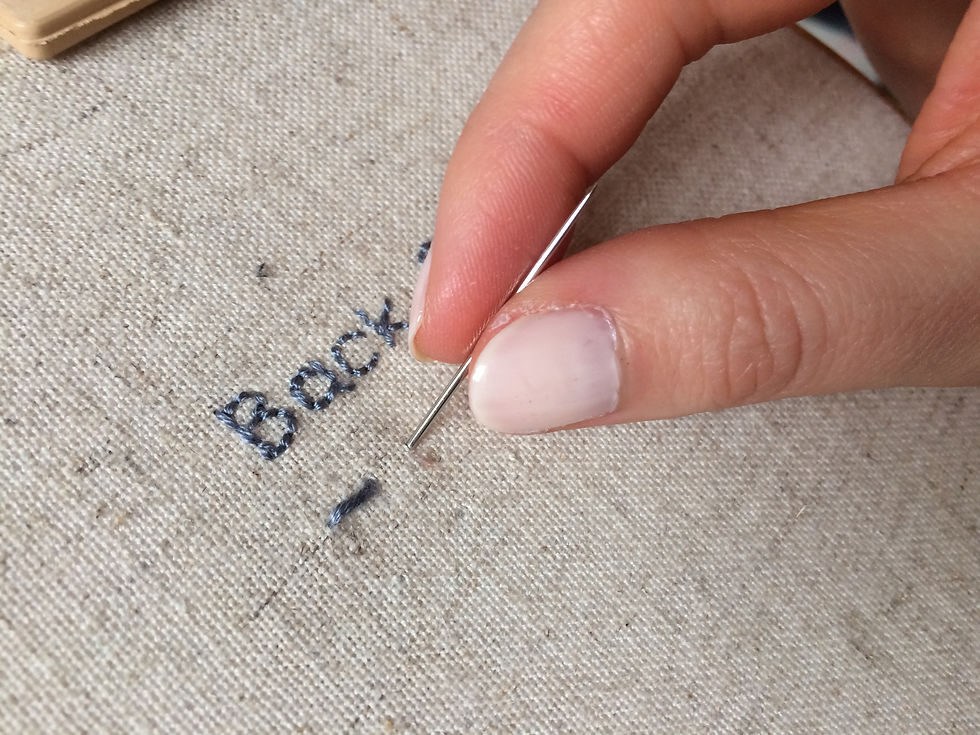
5. Put the needle back into the end of the last stitch.
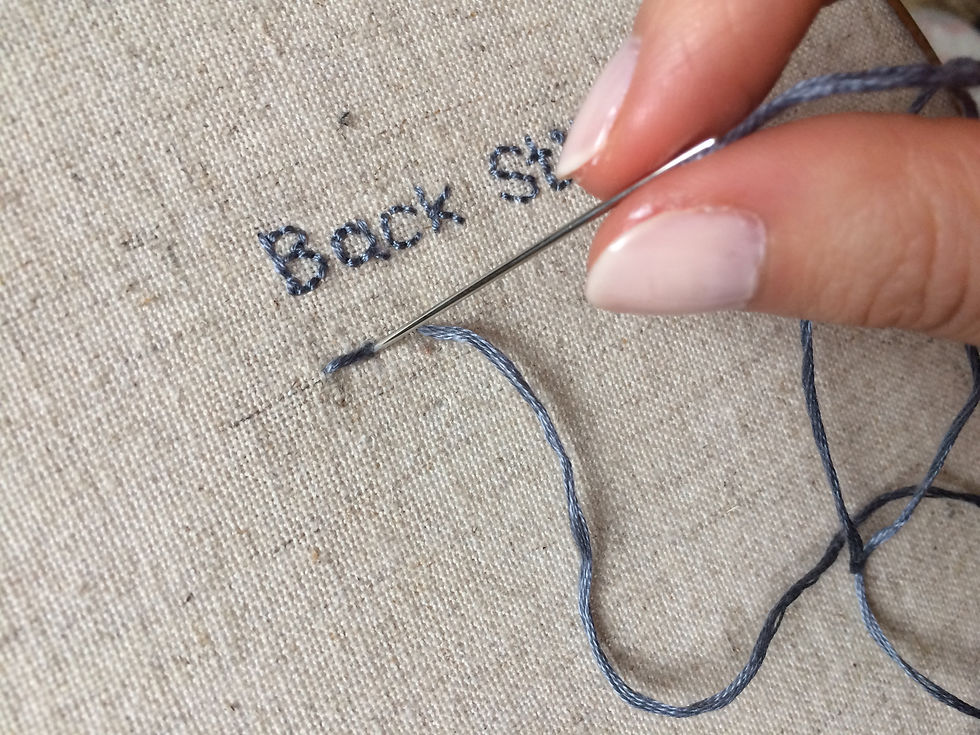
6. Continue this process, keeping the stitches as even and neat as possible.
7. You have now completed the back stitch! I continued with an additional row of back stitch where I kept my stitches at a longer length.
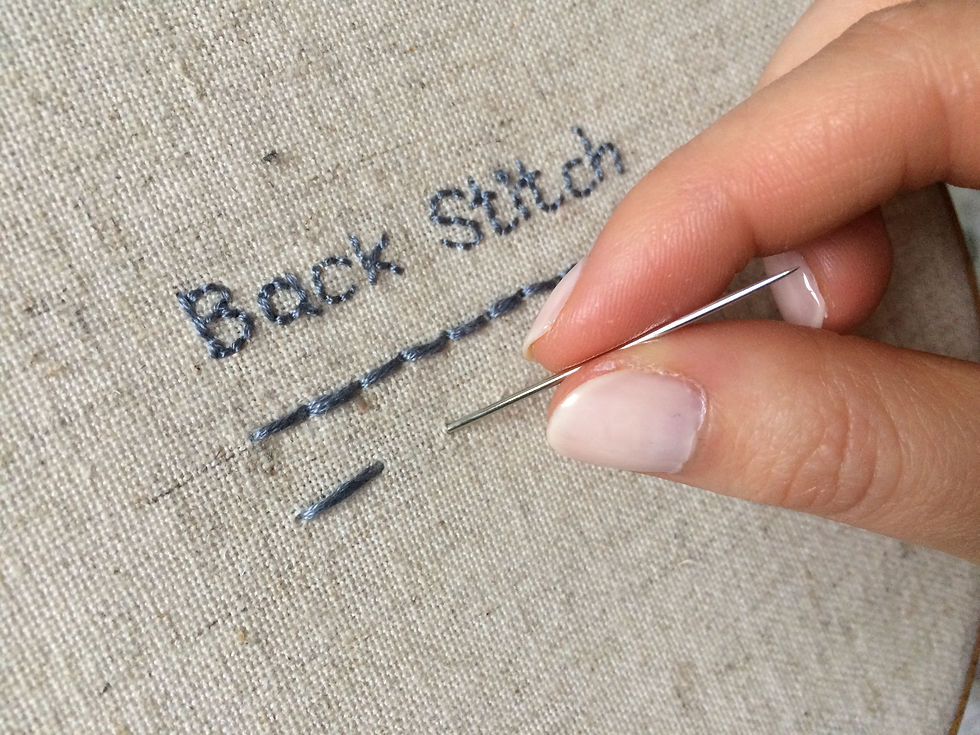
Back Stitch Tips:
* Try not to pull the thread too much otherwise the fabric may pucker
* Vary the amount of thread strands used to create different effects
* Vary the stitch length to create a different look
Stitch Book: Back Stitch
Now let's transfer what we have just learnt about the back stitch into the next page of your stitch book. If you missed the blog post from last month, which introduced you to starting your very own stitch book, then click here where you will find all the info about the materials you will need to start your stitch book.
I prefer to start by roughly drawing out my page design onto paper. This just helps me to think about how I would like the stitch to look on the page. I then used a friction pen to draw this design onto the fabric.
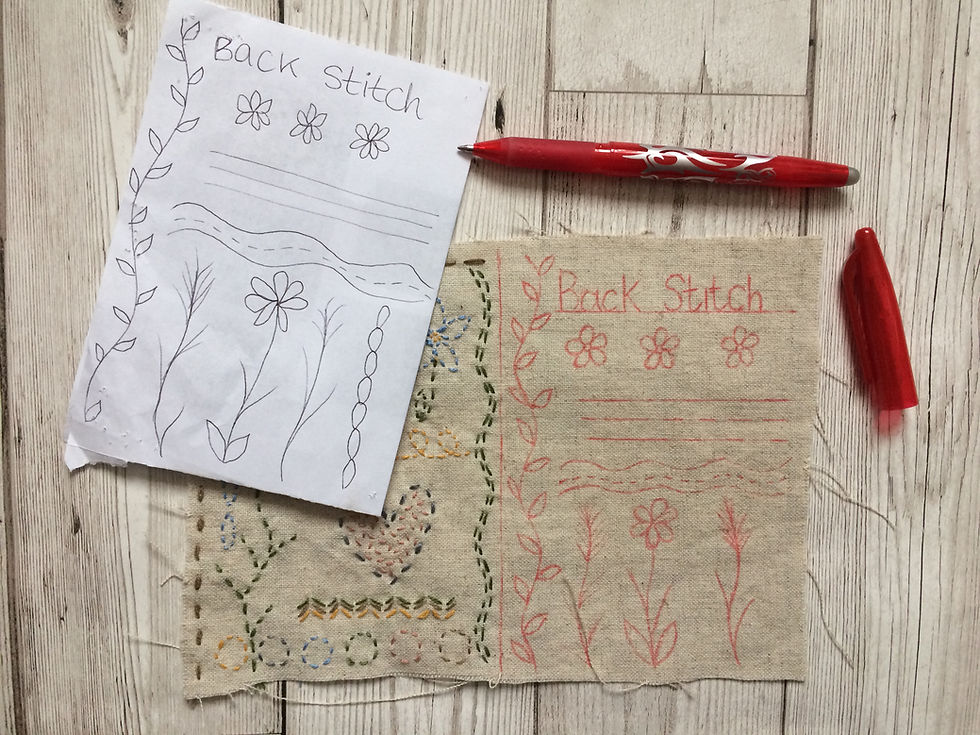
Gather together some embroidery threads in your chosen colours. I'm using the same colours as my previous page but you could always mix the colours up. Now you are ready to start stitching your page design.
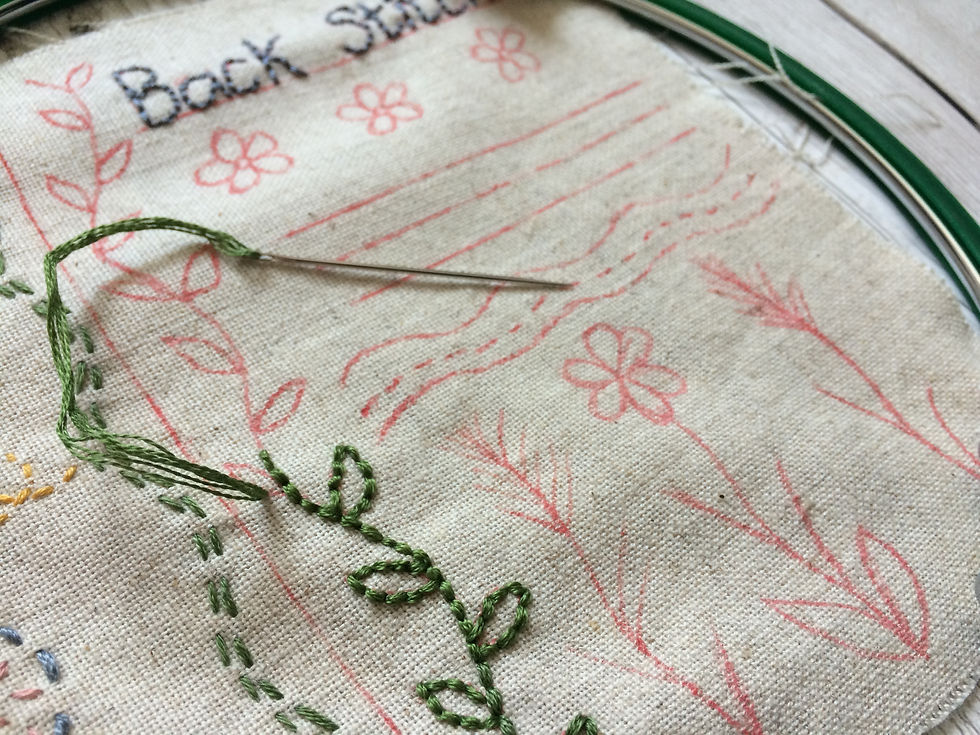
Vary the amount of strands of embroidery thread you stitch with, the colour and the length of stitch. This will give you different effects and may help you to think differently about how you can use the back stitch in future projects.
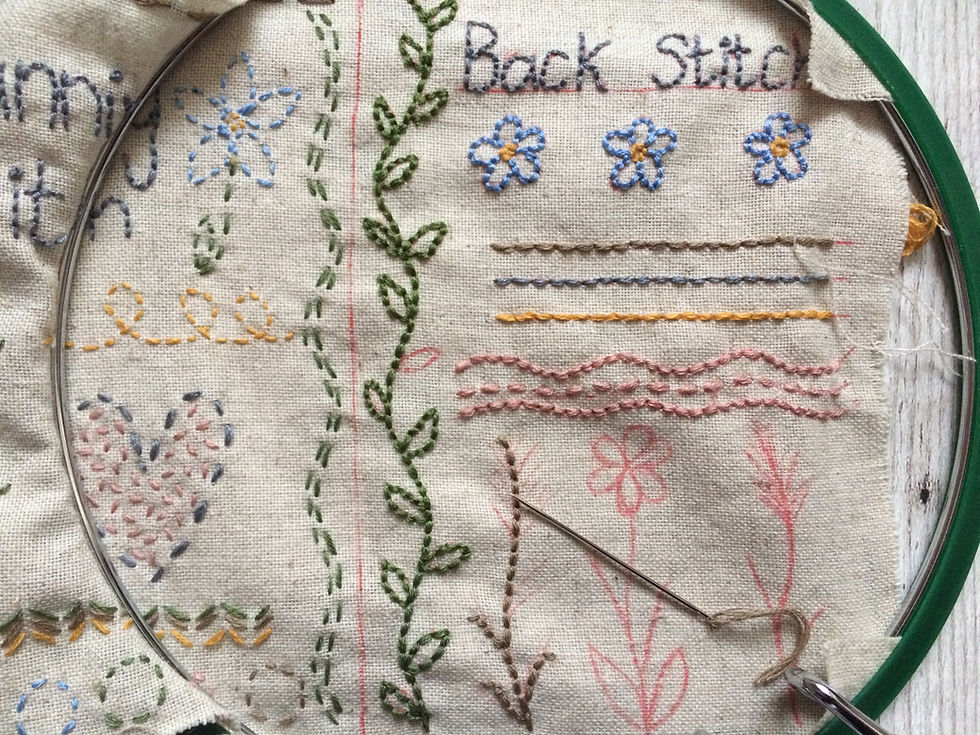
Don't forget to enjoy the process and take your time! There's no rush and there's no need to complete the whole page in one sitting. Stitch a little and then put it down and pick it up again later - whatever suits you. Although I do find hand embroidery so addictive! I think I'm only going to do a few stitches and then an hour later I'm still stitching!
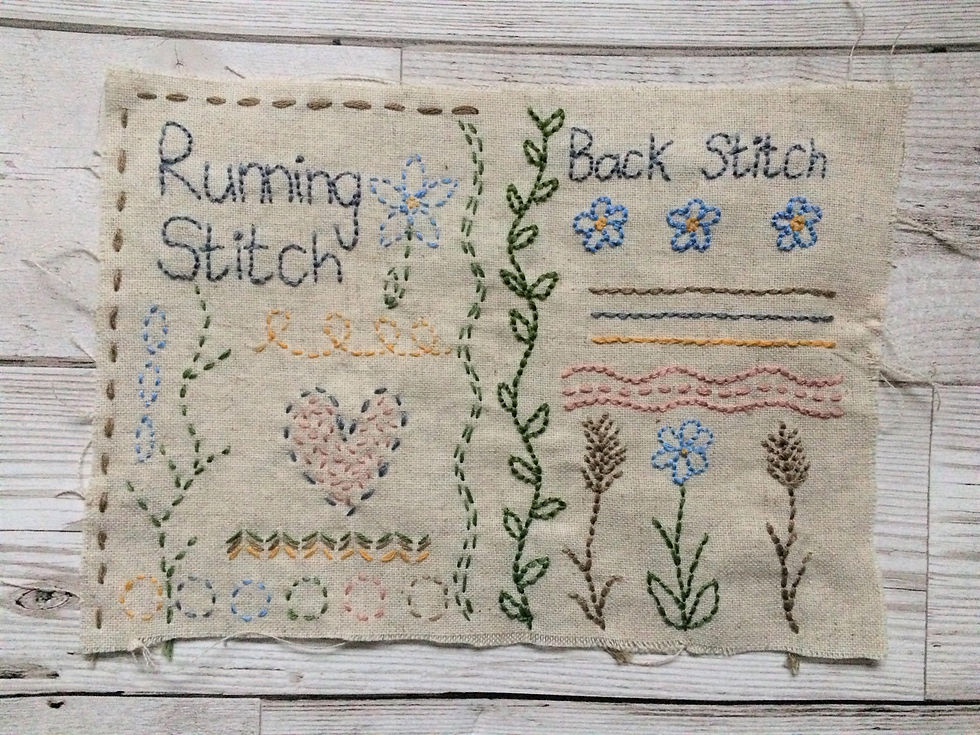
Here is my completed page, I lightly ironed the page after stitching to remove the red lines from the friction pen.
I hope you enjoyed this month's tutorial. Please let me know if you have any questions or anything you would like to see featured by leaving a comment below.
Hannah













I've read your article. Honestly, I've never read this type of informative and efficient article before. This article will help lots of beginners like me to build skills in embroidery. Love to read your incoming blogs too. Really appreciate your work and dedication.
We have https://crystaldigitizing.com/usa-digitizers-embroidery/ to fulfill your embroidery needs.